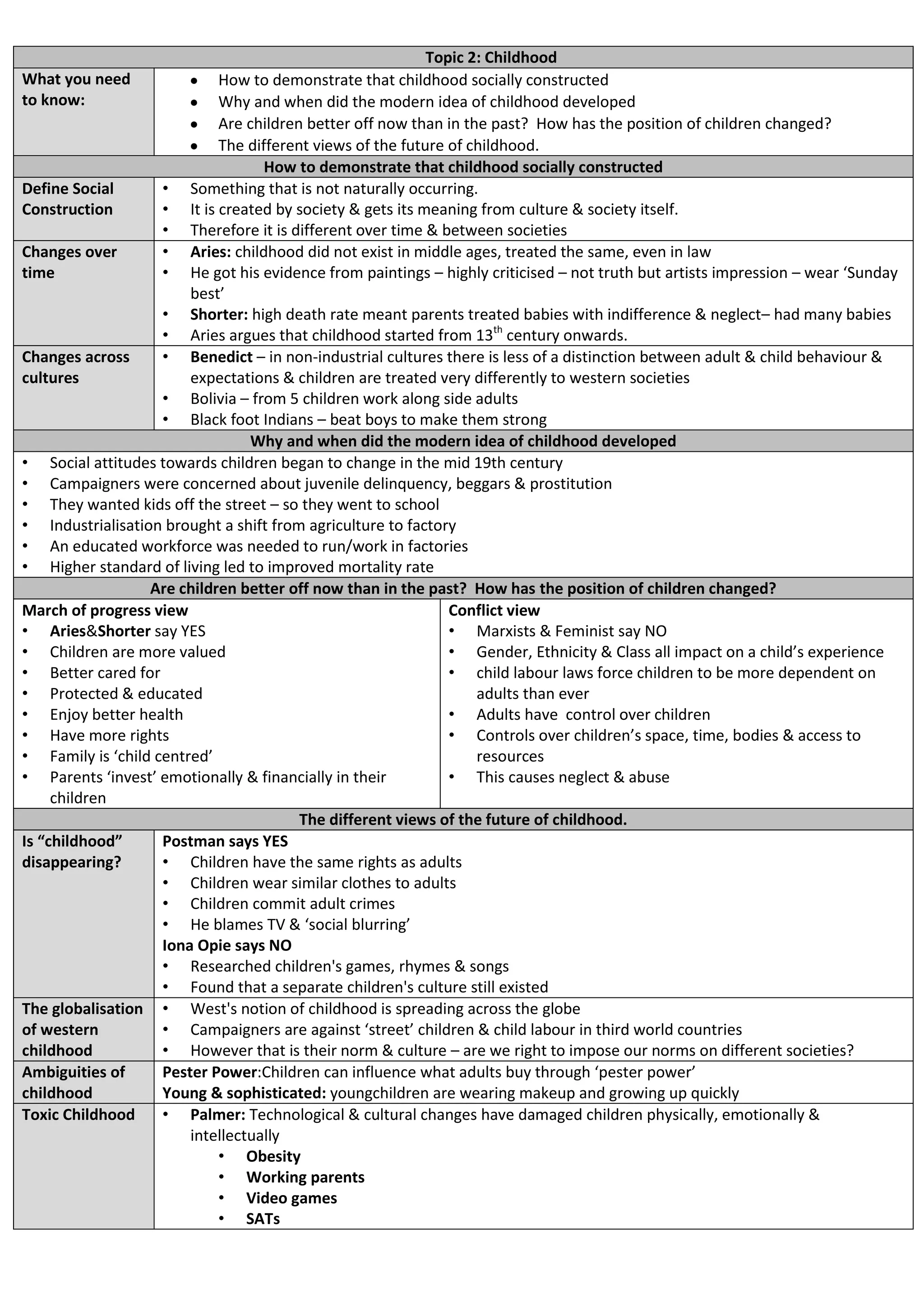1. The modern idea of childhood developed in the mid-19th century as social attitudes towards children began to change. Campaigners wanted children off the streets and in schools, influenced by concerns over juvenile delinquency and the shift to industrialized factory work requiring an educated workforce.
2. Views differ on whether children are better off now than in the past. The "march of progress" view argues children are more valued, protected, educated, and have better health and rights, while the conflict view sees modern childhood as increasing adult control over children's lives and neglecting gender, class, and ethnicity differences in experiences.
3. Debates continue around the future of childhood, such as whether the concept
